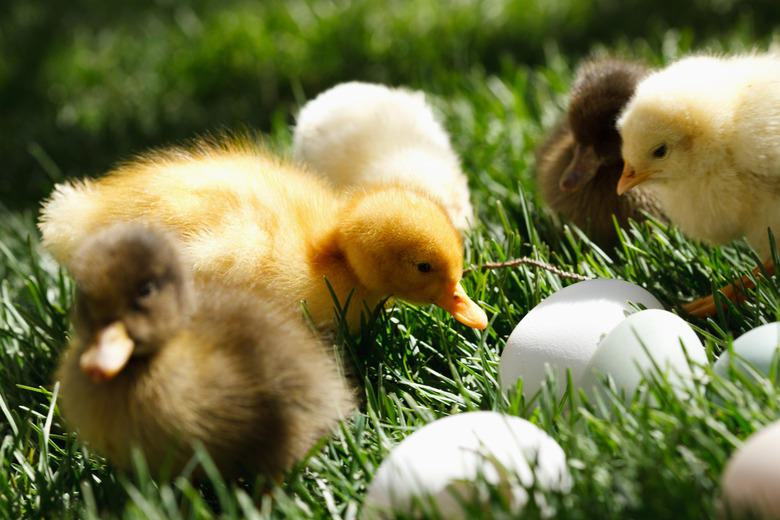How Long Do Duck Eggs Take To Hatch?
Many factors contribute to the length of time it takes for a duckling to hatch. In how many days do duck eggs hatch? Twenty-six days is the minimum and 35 days is the maximum, but it depends on breed. It can be exciting to raise a brood of ducklings, but patience is your most valuable virtue. To hatch a clutch, you must be attuned to the state of the eggs throughout incubation and understand why turning the eggs several times a day is necessary.
Duck egg incubation
Duck egg incubation
Discard cracked or misshapen eggs. You can incubate eggs up to a week after they are laid, provided you store them at 60 degrees F. It's best to incubate the eggs within the first three days of appearing in the nest. Start incubation at 99.5 degrees F and 55 percent humidity.
Without a setter — a component of some incubators that automatically turns eggs — you'll need to turn them by hand an odd number of times each day. Since you can't turn eggs while you sleep, turning them halfway over three or five times daily helps prevent the risk of an embryo getting stuck to the same side of the egg each night. A few days prior to hatching, stop turning them. Lower the temperature to 98.5 degrees F and increase humidity to 94 percent.
Candling a duck egg
Candling a duck egg
Determine whether an egg is fertile by holding the eggs individually up to a bright flashlight in a dark room, also known as candling. Beginning at day seven, check for veins growing. Infertile eggs appear clear; dead eggs look cloudy. Discard those with double yolks or infected eggs that show a dark, blotchy appearance. Check again at 25 days and look for one thing in a common duck egg: a pocket of air should occupy approximately a third of the space inside the egg.
Duck egg hatching time
Duck egg hatching time
Mallards hatch early, within 26 to 27 days. Pekins, and most common breeds of duck, hatch at 28 days. Muscovy ducks are on the longer end, hatching after 35 days. Note that eggs are not laid all at the same time, so they will not hatch at the same time. Sometimes a mother begins to incubate some eggs while others in the same clutch have not been laid — some variance in this list of days can be expected.
Once hatching has begun, a duckling can take several hours to emerge. Resist the urge to help them along unless one makes a hole but no additional progress after 12 hours. If this happens, then go ahead and gently help the duckling. Ducklings will be wet but will dry quickly, sometimes before the last one has hatched. Interestingly, just before hatching, egg embryos will begin chirping, talking to each other, causing the slower embryos to increase their metabolism.
After hatching care
After hatching care
Chicks don't need food for their first 24 hours, because egg yolk has been absorbed into the duckling's abdomen. After this time, transfer ducklings to an indoor brooder box, such as a large plastic bin lined with a bath towel or old T-shirt. Affix a 60- to 75-watt bulb over one side of brooder for warmth, leaving room for ducklings to have a place to move away to if they become too warm.
Feed the hatchlings a nonmedicated chicken mash. Provide clean water in a shallow dish they can drink from but not swim in. Introduce ducklings to water by putting their bill into the dish a few times. Protect them from young children and other household pets.
